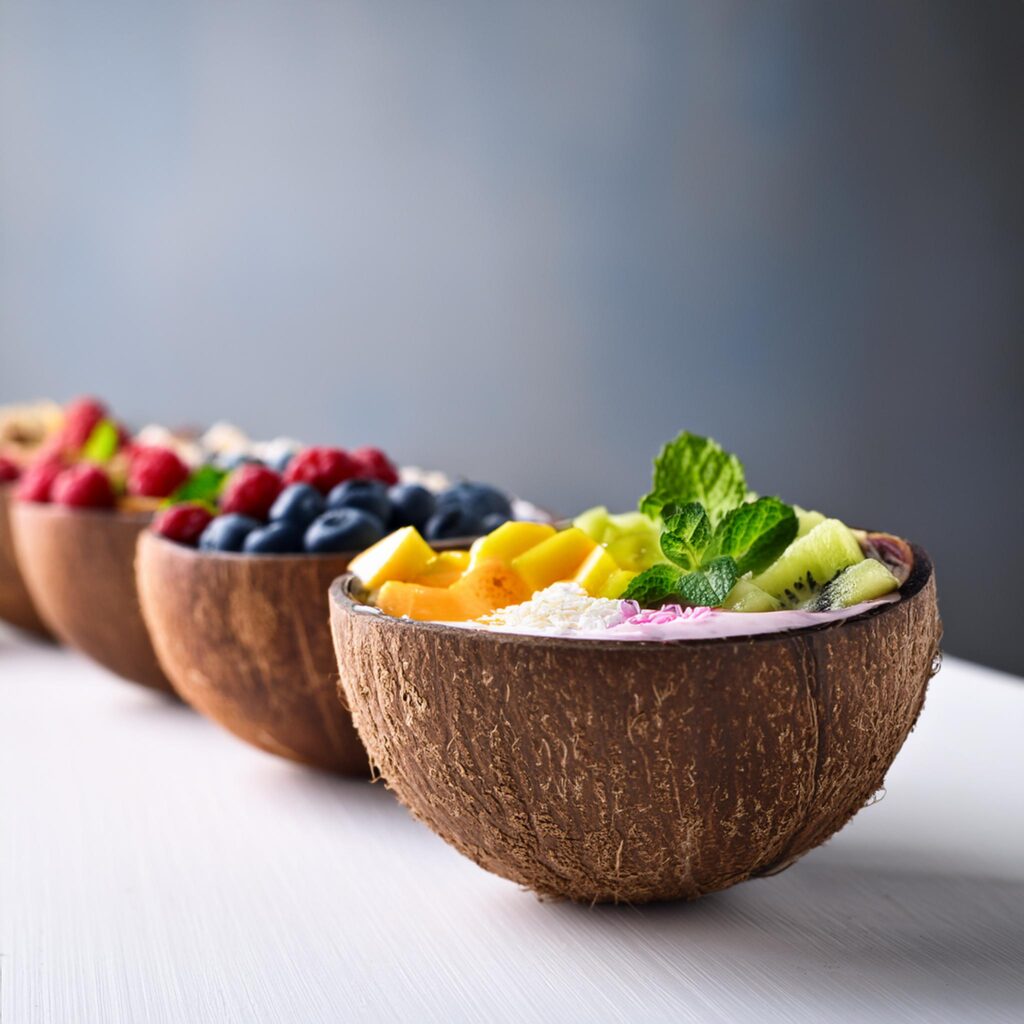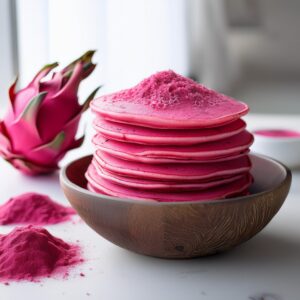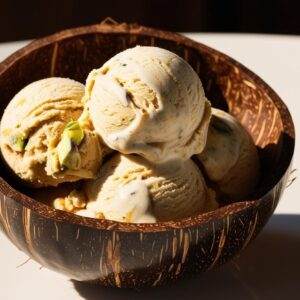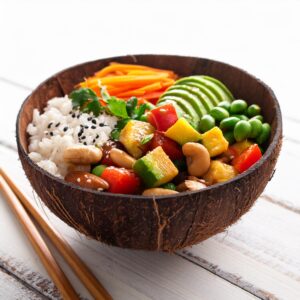Surprising facts about coconuts and their uses throughout history.
Fun Facts About Coconuts You Didn’t Know
Coconuts are fascinating! This post shares fun facts about coconuts that will deepen your appreciation for these versatile fruits.
Fun Facts About Coconuts You Didn’t Know
Coconuts are often associated with tropical beaches, refreshing drinks, and exotic cuisines. But did you know that these versatile fruits have an incredible history and a host of surprising uses? Whether you’re a fan of coconut water, coconut oil, or just the idea of lounging under a coconut tree, there’s more to this amazing fruit than meets the eye. Here are some fun and fascinating facts about coconuts that might just blow your mind!
1. Coconuts Aren’t Technically Nuts
Despite their name, coconuts aren’t true nuts. Botanically speaking, they are classified as a drupe – a type of fruit with a hard outer shell and a seed inside. Other drupes include peaches, cherries, and mangoes. So, if you have a tree nut allergy, you might still be able to enjoy coconuts (but always check with your doctor first!).
2. They Can Travel Across Oceans
Coconuts are natural travelers! Thanks to their buoyant shells and water-resistant outer layer, they can float across oceans and still remain viable for germination when they reach land. This is one reason why coconut trees are found on so many tropical islands around the world. They’re nature’s very own message in a bottle!
3. Coconut Water Is Nature’s Sports Drink
Before sports drinks became a thing, coconut water was the original hydrating beverage. Packed with electrolytes like potassium and magnesium, coconut water is often referred to as “nature’s Gatorade.” It’s not only refreshing but also helps replenish lost fluids and nutrients after exercise or in hot weather.
4. The Coconut Tree Is Known as the ‘Tree of Life’
In many cultures, the coconut tree is called the “Tree of Life” because almost every part of it can be used. The fruit provides food and drink, the husk can be turned into rope or mats, the leaves are used for roofing or weaving, and the trunk can be used as timber. Even the roots have medicinal properties! Talk about multifunctional.
5. Coconuts Have Been Around for Millions of Years
Coconuts have a long history on Earth – they’ve been around for over 55 million years! Fossil evidence suggests that ancient coconut relatives existed during the time of dinosaurs, making them one of nature’s oldest fruits.
6. They Were Once Used as Currency
In some parts of the world, coconuts were so valuable that they were used as currency. In the Maldives, for example, dried coconut meat (called copra) was historically traded as a form of money. Even today, coconuts remain an important economic resource in many tropical countries.
7. Coconut Oil Has Magical Properties (Kind Of)
Okay, maybe not magical, but coconut oil is certainly versatile! It’s used in cooking, skincare, hair care, and even as a natural remedy for various ailments. Some people swear by its ability to moisturize skin, condition hair, and even whiten teeth through oil pulling. Plus, it smells amazing!
8. A Single Tree Can Produce Hundreds of Coconuts Each Year
Coconut trees are incredibly productive. A healthy tree can yield up to 75 coconuts annually, and some trees can produce even more under optimal conditions. That’s a lot of coconuts for your smoothies, curries, and desserts!
9. There Are Over 100 Varieties of Coconuts
While we often think of coconuts as being uniform in appearance, there are actually over 100 different varieties worldwide! They come in various shapes, sizes, and colors – from green coconuts to golden ones. Each variety has its own unique flavor and characteristics.
10. Coconuts Are Featured in Mythology and Folklore
Coconuts hold a special place in many cultures’ myths and legends. In Polynesian folklore, for example, coconuts are said to have been created by the gods as a gift to humanity. In Hindu tradition, coconuts are often offered in religious ceremonies as a symbol of purity and prosperity.
11. They Can Save Lives
During World War II and other conflicts in the Pacific region, coconut water was used as an emergency substitute for saline solution in intravenous drips. Its sterile nature and electrolyte content made it a lifesaver in dire situations.
12. The Largest Coconut-Producing Country Might Surprise You
When you think of coconuts, you might picture Hawaii or the Caribbean. But did you know that the Philippines is the world’s largest producer of coconuts? Indonesia and India follow closely behind. These countries rely heavily on coconuts for both their economies and cuisines.
13. Coconut Crabs Love Them Too!
Have you heard of coconut crabs? These massive crustaceans are named after their favorite snack – coconuts! With their powerful claws, they can crack open a coconut shell to get to the delicious meat inside. They’re like nature’s very own nutcrackers.
14. Coconut Milk Isn’t Coconut Water
It’s easy to confuse coconut milk with coconut water, but they’re quite different! Coconut water is the clear liquid found inside young coconuts, while coconut milk is made by blending grated coconut meat with water and straining it. Both are delicious but serve different culinary purposes.
15. Coconut Shells Make Great Bowls (and More!)
If you’re into sustainable living or eco-friendly products, you’ll love this: coconut shells can be repurposed into bowls, cups, jewelry, and even musical instruments! They’re not only durable but also add a rustic, tropical vibe to your home.
16. The Word ‘Coconut’ Has an Interesting Origin
The word “coconut” comes from the Portuguese word coco, which means “head” or “skull.” Early explorers thought that the three indentations on the coconut shell resembled a face – hence the name!
17. They’re Not Just for Eating
Coconuts aren’t just a food source – they’re also used in beauty products, biofuel production, and even as activated charcoal for water filtration systems. Their versatility truly knows no bounds.
Final Thoughts
Coconuts are more than just tropical treats – they’re an essential part of life for many people around the world and have a fascinating history to boot. So next time you crack open a coconut or sip on some coconut water, take a moment to appreciate all the incredible things this humble drupe has to offer! Who knew one fruit could be so amazing?




